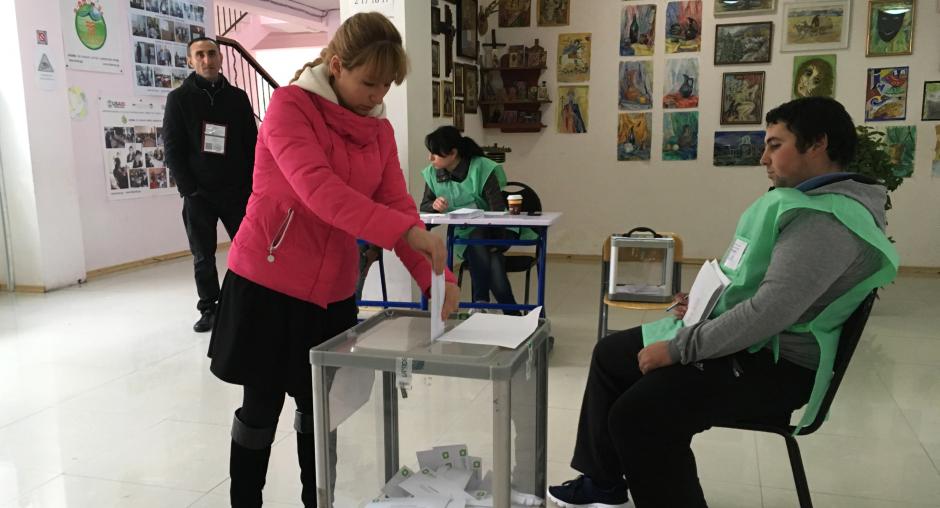Voting assessed positively in competitive run-off elections in Georgia, although legislative framework lacking, international observers say

TBILISI, 31 October 2016 – The 30 October parliamentary run-offs in Georgia were competitive and administered in a manner that respected the rights of candidates and voters, and voting on election day was assessed positively, although issues remain related to lacking a legal framework for second round elections and complaints related to first round results, the international observers concluded in a preliminary statement released today.
“Yesterday’s second round reconfirmed that Georgia’s 2016 parliamentary elections enabled candidates to campaign freely and voters to make informed choices about their options,” said Ignacio Sanchez Amor, the Special Co-ordinator and leader of the short-term OSCE observer mission. “Full regulation of second round voting is lacking in the law, and attention must be paid to legal investigation and complaints procedures, but I was pleased to see that election day was smooth and professionally run.”
In the period between the rounds, contestation of the first round results by opposition parties dominated political discourse. Investigation and adjudication of election disputes often did not respect the principles of transparency and the right to effective redress. All this weakened confidence in the election administration.
“The stakes in this second round were very high, with the ruling party aiming at obtaining a constitutional majority. Early electoral results seem to confirm this. Therefore particular responsibility lies with the majority. It needs to use this power to benefit the country, rather than for political retribution,” said Ana Gomes, Head of the EP delegation. “Ensuring respect for the institutional checks and balances between the different branches of power, and for the democratic roles of the majority and of the opposition is of paramount importance.”
After the first round election day, district election commissions received over 1,100 complaints mainly regarding the counting process in polling stations. Weaknesses were noted in the adjudication of complaints. Complainants were not always notified about the time and place for consideration or provided with copies of decisions and in a number of cases thorough investigations were not conducted.
“The withdrawal of some candidates between the first and second rounds is a serious issue and the motivation of these withdrawals should be thoroughly analyzed,” said Emanuelis Zingeris, Head of the PACE delegation. “Legal investigation of the irregularities in the first round must be completed. It goes without saying that allegations, coming from all sides, on irregularities during the second round must be carefully evaluated as well.”
The Election Code does not regulate the second round. Aiming to address a few procedural issues the central election commission issued decrees, however, these were adopted late in the process, interpreted the law in a contentious manner, and, at times, contradicted the Election Code.
“The lack of a legal framework for the second round had a noticeable impact on the process,” said Ambassador Alexandre Keltchewsky, Head of the OSCE/ODIHR long-term election observation mission. “Further steps should and can be made to address remaining challenges in law and practice and ODIHR is ready to assist the Georgian authorities in this process.”
In the short and subdued campaign, media coverage was more balanced than for the first round. Election day procedures were conducted in a smooth and professional manner. International observers assessed the voting process more positively than in the first round, polling station commissions were better prepared and adherence to procedures improved.
For further information contact:
Lauren Baranowska, OSCE/ODIHR, +995 595 126 333 or +48 695 916 998, lauren.baranowska@odihr.pl
Andreas Baker, OSCE PA, +995 595 1262 98 or +45 60108126, andreas@oscepa.dk
PACE Communication Division, +33 388 41 31 93
Marta Udina, EP, +995 595 040 819, marta.udina@europarl.europa.eu
